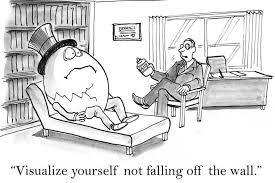
My local humanist group hosted a presentation by Ryan Cragun, a sociologist with a flair for statistics, talking about studies purporting to find correlations between religion and happiness. They’re often ballyhooed in the popular press.
But Cragun said such studies are typically deeply flawed. Usually examining only America — an outlier country, disproportionately religious, and hyper-individualistic, compared to other advanced nations. And even within America, the studies are often unrepresentative, surveying limited population segments. There’s also the eternal conundrum of correlation versus causation. (Cragun suggested the “gold standard” would be a controlled experiment, unlikely to happen.) But the biggest problem with these studies is disregard for the size of any effects reported.

Cragun countered those studies with one of his own, based on a 2010-14 “World Values Survey” of 60 countries (a major and highly regarded undertaking). Cragun measured self-reported happiness ratings against three variables: asking (1) are you religious? (2) how important is God in your life? And (3) how often do you attend religious services? (People often lie about the latter.)
To recap the results, in only a handful of the 60 countries were there any statistically significant correlations between happiness and the three questions. (Statistical significance meaning only that a result is unlikely due to mere chance.) However, even where there was statistical significance, still the size of the effect was so tiny as to be meaningless. (The U.S. showed the highest effects, but even here, tiny.)

Based on these results, Cragun commented that “no therapist should recommend religion as a treatment for depression.”
Meantime, he was also critical of those other reported correlation studies for lacking a theory to explain why religion should confer happiness. Actually, there are some conventional ideas in this regard — like the comfort of an afterlife belief.

But Cragun cited Phil Zuckerman’s book Society Without God, indicating that compared against non-religious people, religious believers actually fear death more. Feeling uncertain about their fates, and afraid of Hell. Whereas atheists feel sure death is an end, and tend to be accepting of it.
Cragun also cited a famous, well-funded study of heart surgery outcomes when people prayed for the patients. Confounding the expectations of the study’s sponsors, those patients were more likely to die. Apparently being told of the prayers made them more fearful.

There’s also the idea of comfort at the thought that a paternalistic God is watching over you. But here again that’s a double-edged sword. Another source of anxiety, thinking you have no privacy from a judgmental deity. Believing God is always watching you can induce neuroticism.
To the extent there actually is any happiness benefit from religion, it probably has little to do with the beliefs, but more the social connections when one is part of a congregation. Cragun pointed out that, of course, one doesn’t have to go to church to have nourishing friendships.
****
I’ve previously written about Joseph Henrich’s book on “WEIRD” people — meaning Western, educated, industrialized, rich, and democratic. One point catching my attention was a statistical analysis showing that countries with greater belief in Heaven and Hell had faster economic growth and lower murder rates. But actually, believing in just Heaven made no difference; it was belief in Hell that did. In fact, the greater the percentage believing only in Heaven but not Hell, the higher the murder rate! Henrich says these correlations held even after adjusting for differences in factors like national weath and inequality.
Religious advocates do eternally insist that such beliefs make people more conscientious and moral. And it might seem logical that fear of Hell would do that. Yet count me skeptical. A countervailing factor is religious people convincing themselves they’re blessed by God so anything they do must be justified. History overflows with examples of resulting horrors. A belief system defying reality is not a good foundation for moral judgment.

Thus unsurprisingly Muslim societies that are the most religiously intense also tend to be the most messed up on a whole range of civic virtue measures, ranging from treatment of women (female genital mutilation, “honor” killings, etc.) to corrupt and undemocratic, repressive governance. In contrast to advanced Western countries, especially European, which are the most well ordered societies, where people can flourish — and where religious belief has largely collapsed. Henrich’s supposed correlations seem baffling.
